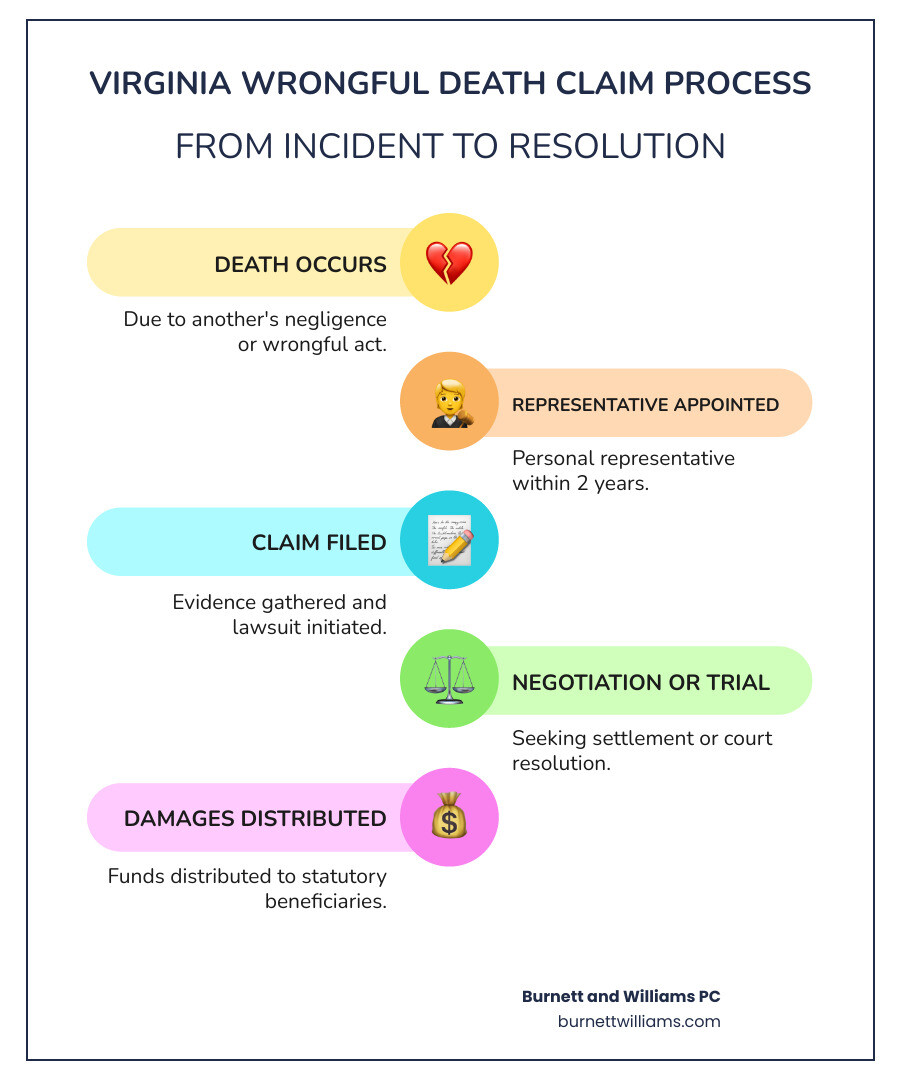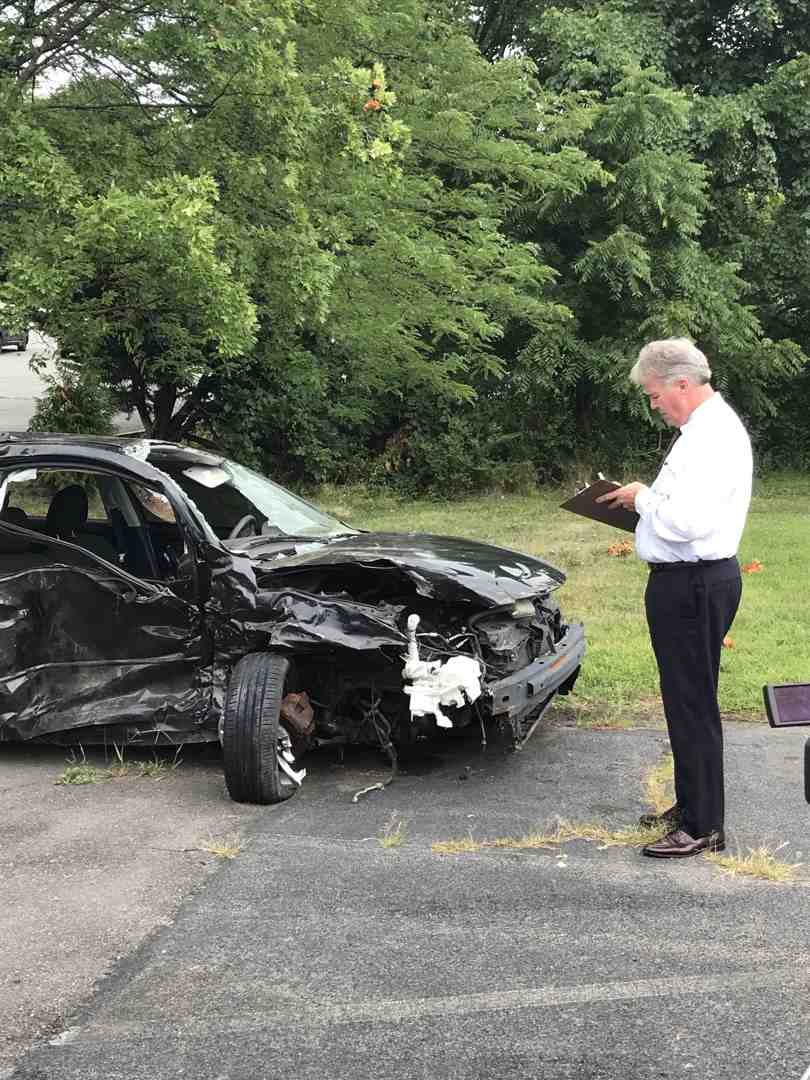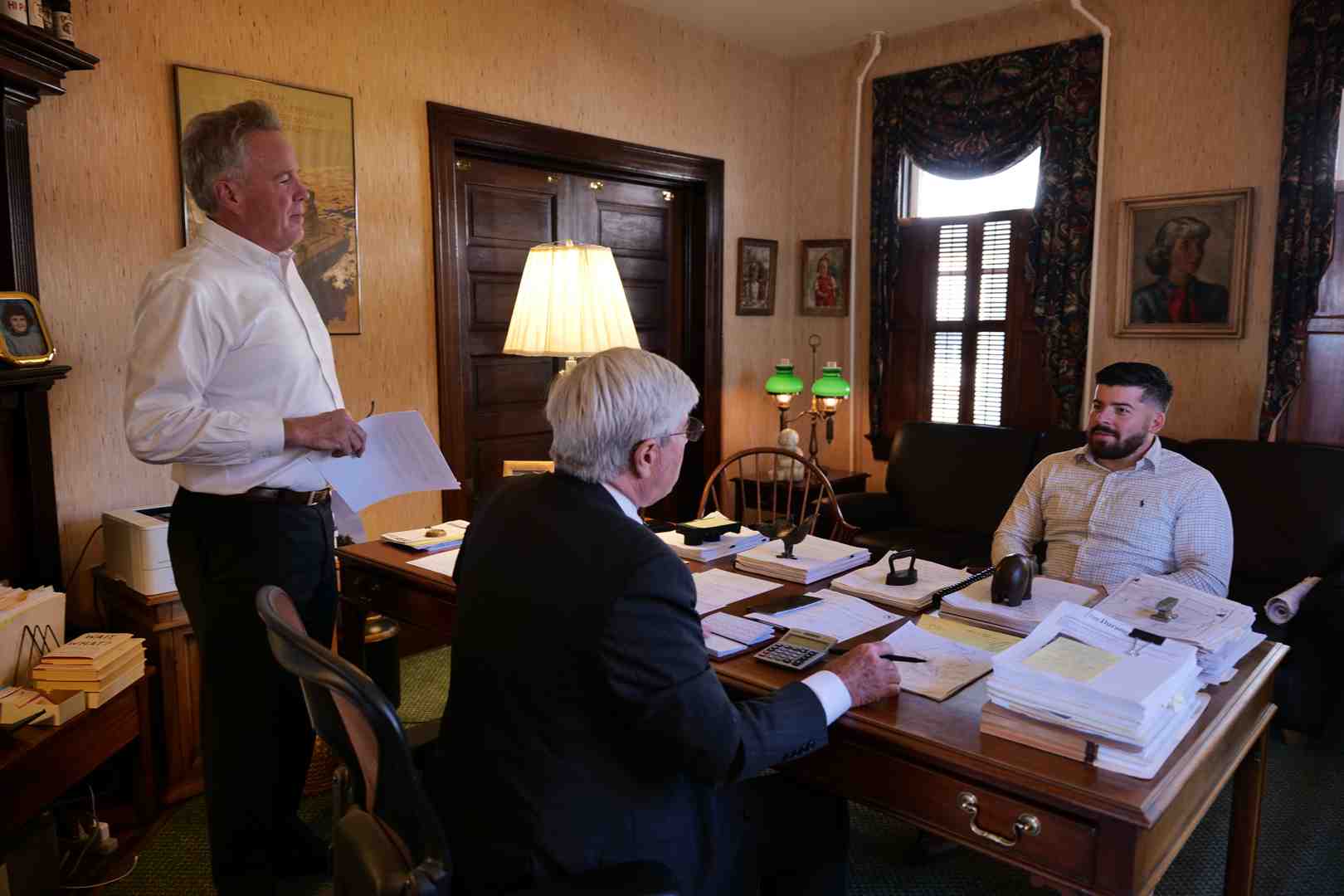Why Understanding Virginia Wrongful Death Law Matters
Virginia wrongful death cases arise when someone dies due to another person’s negligence, recklessness, or intentional actions. If you’re facing this devastating situation, here’s what you need to know:
Key Virginia Wrongful Death Facts:
- Who can file: Only the personal representative of the deceased’s estate
- Time limit: 2 years from the date of death
- Damages: No cap on most compensation (except punitive damages)
- Beneficiaries: Spouse, children, parents, siblings, and other dependents (in order of priority)
- Required proof: Duty of care, breach of duty, causation, and damages
Losing a loved one is heartbreaking. When that loss stems from someone else’s wrongful actions, families face both crushing grief and overwhelming legal complexities.
Virginia’s wrongful death laws can feel like a maze. The statutes are technical. The deadlines are strict. The legal procedures are confusing. Yet these laws exist to protect your family’s rights and provide financial security during an unimaginably difficult time.
This guide cuts through the legal jargon to explain Virginia’s wrongful death process in plain English. You’ll learn who can file a claim, what damages you can recover, and how to steer the legal system while you’re grieving.
What Legally Constitutes a Wrongful Death in Virginia?
When someone dies because of another person’s actions in Virginia, it doesn’t automatically become a wrongful death case. The law has specific requirements that must be met.
Virginia wrongful death occurs when a person dies due to someone else’s wrongful act, neglect, or default. Here’s the key test: if your loved one had survived their injuries, would they have been able to sue the person who hurt them? If the answer is yes, then you likely have grounds for a wrongful death claim.
Think of it this way. The law allows you and your family to step into your loved one’s shoes and seek the justice they can no longer pursue themselves. It’s Virginia’s way of making sure that someone who causes a death through negligence doesn’t escape responsibility just because their victim can’t speak for themselves anymore.
To win a Virginia wrongful death case, we need to prove four essential elements. First, there’s duty of care. The person who caused the death must have owed your loved one a legal responsibility to act safely. A driver owes other motorists the duty to follow traffic laws. A doctor owes patients the duty to provide competent medical care.
Second comes breach of duty. We must show the responsible party failed to meet their obligation. Maybe the driver was texting behind the wheel. Perhaps the doctor ignored clear warning signs of a serious condition.
The third element is causation. There must be a direct link between the negligent act and your loved one’s death. This isn’t always straightforward, especially in medical cases where multiple factors might be involved.
Finally, we must prove damages. Your family suffered real, measurable losses because of this death. This includes both financial losses and the profound emotional impact of losing someone you love.
For a deeper understanding of how these principles apply to your situation, you can learn more about Wrongful Death claims in Virginia.
Common Causes of Wrongful Death
Wrongful deaths in Virginia stem from many different events. Car accidents are a leading cause, with driver negligence on roads like I-66 in Loudoun County and Leesburg town streets claiming too many lives.
Other common causes include:
- Truck collisions: These accidents on highways like I-81 are often catastrophic and may involve driver fatigue or improper maintenance.
- Medical malpractice: These heartbreaking cases happen when families trust healthcare providers, but a surgical error or a missed diagnosis in a Richmond hospital leads to a fatal outcome.
- Defective products: Everyday items can become deadly due to faulty car parts, dangerous medications, or improperly tested household products.
- Unsafe property: Property owners can be held responsible when someone dies due to dangers like broken stairs, faulty wiring, or negligent security.
- Workplace accidents: While workers’ compensation often applies, a wrongful death claim may be possible if a third party, like an equipment manufacturer, contributed to the tragedy.
Some cases involve complex circumstances, like those discussed in our article about Richmond Shooting and Wrongful Death Lawsuits. If negligence played a role in your loved one’s death, Virginia law offers a path to justice.
Who Can File a Claim and What Are the Deadlines?
When you lose a loved one due to someone’s negligence, it’s crucial to know who can take legal action. In Virginia, not just anyone can file a Virginia wrongful death lawsuit, even if they are grieving deeply.
The responsibility falls to the personal representative of the deceased’s estate. This person files the lawsuit on behalf of all eligible family members, acting as the legal voice for your loved one.
Who becomes this personal representative? If your loved one had a will, the executor named in that will typically steps into this role. When there’s no will or no executor was named, a Virginia court will appoint an administrator to handle the estate and file any wrongful death claim.
This system ensures one organized voice represents everyone’s interests and prevents conflicting lawsuits from multiple family members.
Statutory Beneficiaries in Virginia
Virginia law creates a clear pecking order for who receives compensation from a wrongful death settlement or verdict. This hierarchy protects those who depended most on the deceased person.
First in line are the surviving spouse, children, and grandchildren. This primary group includes adopted children and even stepchildren who relied financially on the deceased. If you were married to the victim or are their child, you’re in this top priority group.
Second in line come surviving parents, siblings, and other dependent relatives. This group matters most when the deceased had no spouse or children, or when dealing with a minor’s death. Other relatives who lived in the same household and depended financially on the deceased may also qualify here.
Third in line are other family members entitled to inherit under Virginia’s rules for distributing property when someone dies without a will. This catches anyone who might have been overlooked but still had a legal relationship with the deceased.
This system prioritizes those who felt the loss most deeply, both emotionally and financially.
The Statute of Limitations for a Virginia Wrongful Death Lawsuit
Time becomes your enemy after a wrongful death. Virginia gives families exactly two years from the date of death to file a wrongful death lawsuit. Miss this deadline, and you lose your right to seek compensation forever, regardless of how strong your case might be.
A critical detail is that the clock starts from the date of death, not the date of the incident. If your loved one was in the hospital for months after an accident before passing away, the two-year period begins on the date of death.
This deadline is not flexible. Virginia courts will dismiss a case filed even one day late. Waiting too long can cause a family to lose a valid claim worth hundreds of thousands of dollars.
Acting promptly protects your family’s rights. Evidence disappears, witnesses forget details, and insurance companies become less cooperative as time passes. The sooner you begin the legal process, the stronger your case becomes.
Don’t let grief and confusion cost your family the financial security they deserve. If you believe someone’s negligence caused your loved one’s death, reach out for legal guidance immediately. Our team at Virginia Wrongful Death Attorney understands the urgency and will move quickly to protect your rights while you focus on healing.
The Virginia Wrongful Death Lawsuit: From Evidence to Resolution
When facing a Virginia wrongful death case, building a strong claim is essential for your family’s future. While the legal process can feel overwhelming, understanding the steps can help you feel more prepared.
Evidence is the foundation of your case. We methodically gather every piece of crucial proof to tell your loved one’s story and show what happened.
Key evidence includes:
- Police and accident reports: These provide a starting point with witness statements and initial findings.
- Medical and coroner’s reports: These are vital for detailing injuries and the official cause of death, linking the defendant’s actions to the outcome.
- Witness testimony: Accounts from people who saw what happened can be incredibly powerful and provide a clear picture of events.
- Expert opinions: Professionals like accident reconstruction specialists and forensic economists can make complex situations understandable and translate technical details into compelling evidence.
A wrongful death claim focuses on your family’s losses. This includes the sorrow and mental anguish you’re experiencing, the loss of companionship and guidance, and the financial support your loved one would have provided for years to come.
Civil vs. Criminal Cases
Many grieving families are confused about the difference between a civil wrongful death lawsuit and a criminal case.
Civil court is where your wrongful death lawsuit takes place. Here, we’re focused on getting your family monetary damages. The standard we must meet is called “preponderance of the evidence,” which means we need to show it’s more likely than not that the defendant caused your loved one’s death.
Criminal court operates on a completely separate track. The state brings criminal cases to punish people who break laws, potentially resulting in jail time or fines. The burden of proof is much higher here: “beyond a reasonable doubt.”
The two cases can work in your favor. You can pursue a civil wrongful death case even if the responsible person faces criminal charges. In fact, a criminal conviction can serve as powerful evidence in your civil lawsuit.
Think of it this way: the criminal case asks “Did this person break the law?” while your civil case asks “What compensation does this family deserve?” We handle all the civil court proceedings while prosecutors manage any criminal case. This allows you to focus on healing while we focus on securing the financial future your family deserves.
Understanding Compensation: Damages in a Virginia Wrongful Death Case
When we pursue a Virginia wrongful death claim, our goal is to secure comprehensive compensation that reflects the profound losses your family has endured. The damages awarded are designed to be “fair and just” for the injuries and sorrow that result from losing someone you love.
Virginia law recognizes three main categories of damages: economic damages (measurable financial losses), non-economic damages (emotional and relational losses), and punitive damages (punishment for especially egregious conduct).
A key feature of Virginia law is that there’s generally no cap on compensatory damages in wrongful death claims. This means the court won’t artificially limit compensation for your economic and non-economic losses. The only exception applies to medical malpractice cases, which have specific damage caps.
We work carefully to identify and quantify every loss your family has suffered. For deeper insights into how compensation is determined, please visit our page on Understanding Compensation for Wrongful Death Claims.
Types of Damages in a Virginia Wrongful Death Claim
Virginia’s wrongful death statute allows recovery for many types of losses, including:
- Sorrow, mental anguish, and loss of companionship: This addresses the family’s grief and the loss of comfort, guidance, and society of the deceased.
- Lost income and financial support: This includes the deceased’s expected lifetime earnings and benefits, often calculated with help from economic experts.
- Loss of services and care: This covers the monetary value of services the deceased provided, such as childcare, household maintenance, and more.
- Medical expenses: All reasonable costs for medical care related to the final injury are recoverable.
- Funeral and burial costs: Families can recover the costs of funeral and burial services.
Punitive Damages and Distribution of Proceeds
In cases of outrageous conduct, punitive damages may be available. These damages are not to compensate the family, but to punish the wrongdoer and deter similar behavior.
Punitive damages typically apply when the defendant’s actions showed willful or wanton conduct or such recklessness that they demonstrated conscious disregard for others’ safety. A drunk driver with an extremely high blood alcohol content might face punitive damages.
Virginia does cap punitive damages at $350,000, but this limit doesn’t affect your compensatory damages, which can be much higher.
After a settlement or verdict, the distribution process begins. Court approval of settlements is required to ensure the agreement is fair, protects beneficiaries, and follows Virginia law.
Distribution of funds to beneficiaries happens according to a specific process. First, attorney fees and case costs are deducted. Then we pay any outstanding medical bills or funeral expenses. The remaining funds go to the statutory beneficiaries as determined by a judge or jury, based on their individual relationships with the deceased and their specific losses.
Frequently Asked Questions About Virginia Wrongful Death Claims
We know you’re dealing with an overwhelming situation. Losing someone you love is devastating enough without having to worry about legal complexities. During our years of helping Virginia families, we’ve noticed that certain questions come up again and again. Here are the answers to what families most often ask us about Virginia wrongful death claims.
How long does a wrongful death case take in Virginia?
The timeline for a wrongful death case varies, as each situation is unique. Simpler cases with clear fault may settle in several months. For example, a case with an at-fault drunk driver might resolve relatively quickly if the insurance company accepts responsibility.
However, more complex cases often take longer. A case involving medical malpractice at a Virginia hospital might require extensive review of medical records and testimony from multiple experts. Cases with disputed fault or significant damages typically take a year or two to resolve fully. Some cases that go to trial can stretch even longer.
The most important thing to remember is that we’re not racing against the clock just to finish quickly. We’re fighting for the maximum compensation for your family. Sometimes that means being patient to achieve a truly just outcome. We’ll keep you informed every step of the way.
What if the deceased was partially at fault for the accident?
This is a challenging aspect of Virginia law that surprises many families. Virginia follows a strict contributory negligence rule.
Under this rule, if the deceased is found to be even 1% at fault for the accident, their family is barred from recovering any compensation. Even the slightest fault can end the claim.
Let’s say your loved one was driving through Fairfax County when another driver ran a red light and caused a fatal collision. If the investigation shows that your family member was going 5 mph over the speed limit, the defense might argue that this contributed to the accident. If a judge or jury agrees, your entire claim could be dismissed.
This is exactly why having an experienced attorney is so critical. We know how to fight these fault allegations aggressively. We investigate every detail, work with accident reconstruction experts, and challenge any attempt to shift blame to your loved one. Our job is to protect your family’s rights and counter these tactics.
Do I have to go to court for a wrongful death claim?
Many families worry about a trial, but the good news is that most Virginia wrongful death cases are resolved through settlement negotiations and do not go to trial.
Settlement negotiations happen behind the scenes. We handle all the back-and-forth discussions with insurance companies and opposing attorneys. You won’t have to argue with anyone or defend your loved one’s memory. We take care of all that difficult work for you.
We prepare every case for trial. This thorough preparation gives us stronger negotiating power, making the other side more likely to offer a fair settlement.
If your case does require court proceedings, you won’t be alone. We’ll guide you through every step, explain what’s happening, and handle all the legal complexities. While the legal system might feel intimidating to you, it’s familiar territory for us. We’ll make sure you understand what’s happening and feel confident about the decisions we’re making together.
Conclusion
Losing a loved one due to someone’s negligence is a devastating experience. Navigating a Virginia wrongful death claim while grieving can feel overwhelming, but you do not have to face it alone. Virginia’s strict deadlines and complex laws require prompt, careful action to protect your family’s rights.
At Burnett & Williams PC, we understand that no amount of money can replace your loss. However, holding the responsible party accountable can provide financial security and a sense of justice. We offer responsive, caring client service to guide you through this difficult time.
Because time is critical, we encourage you to understand your options as soon as possible. If you have questions about your claim, we are here to help. Learn more about how a Virginia personal injury attorney can fight for the justice your family deserves.



